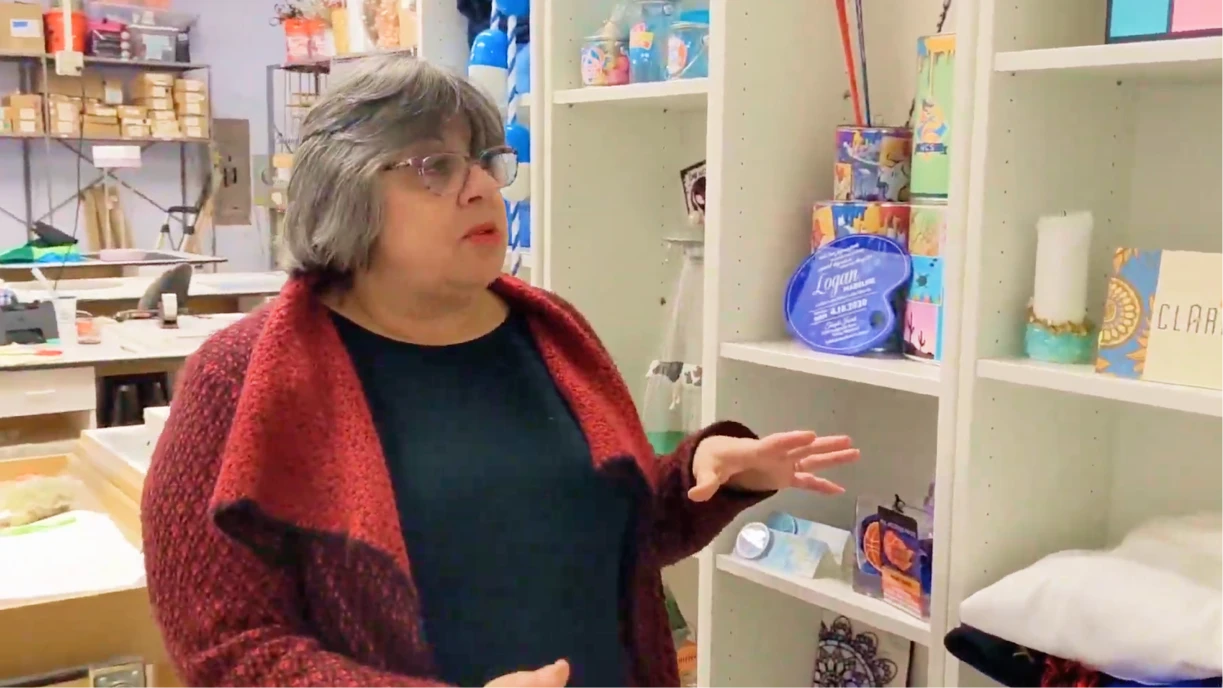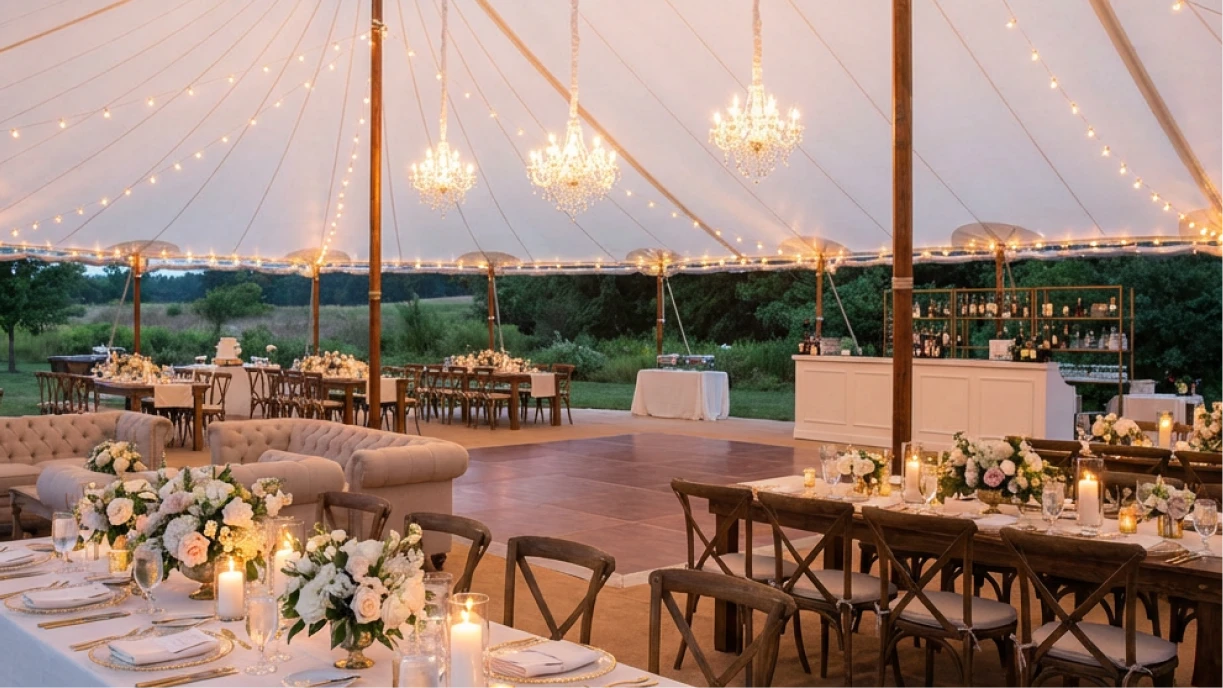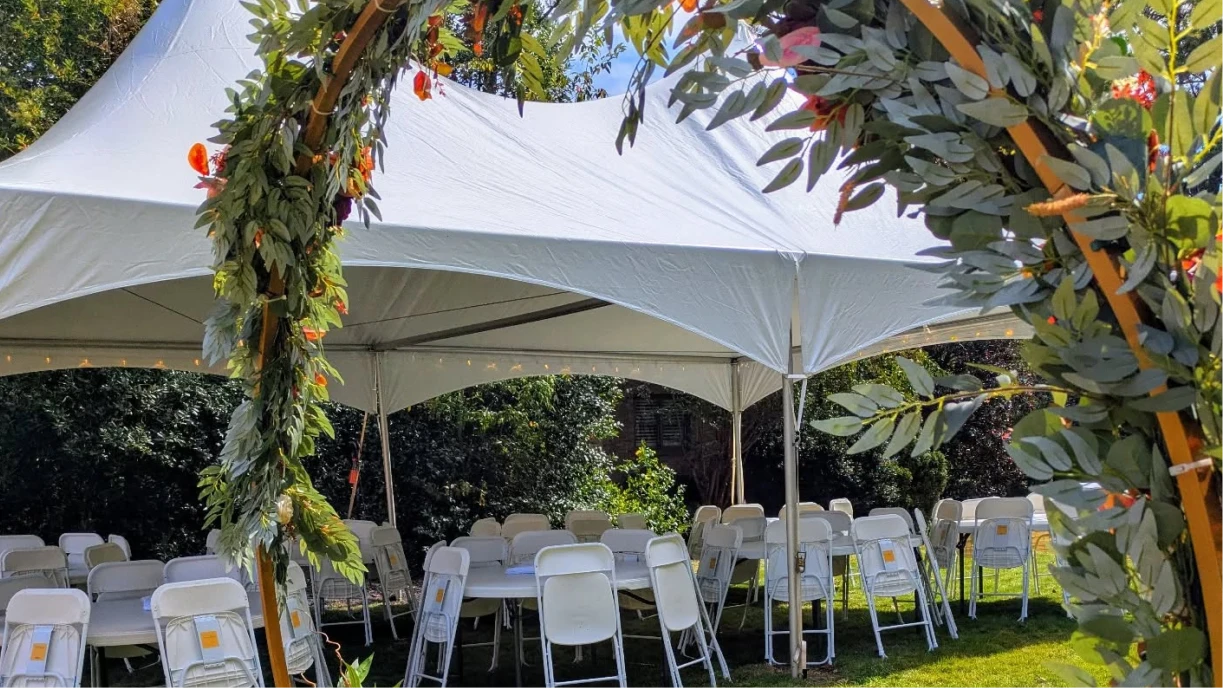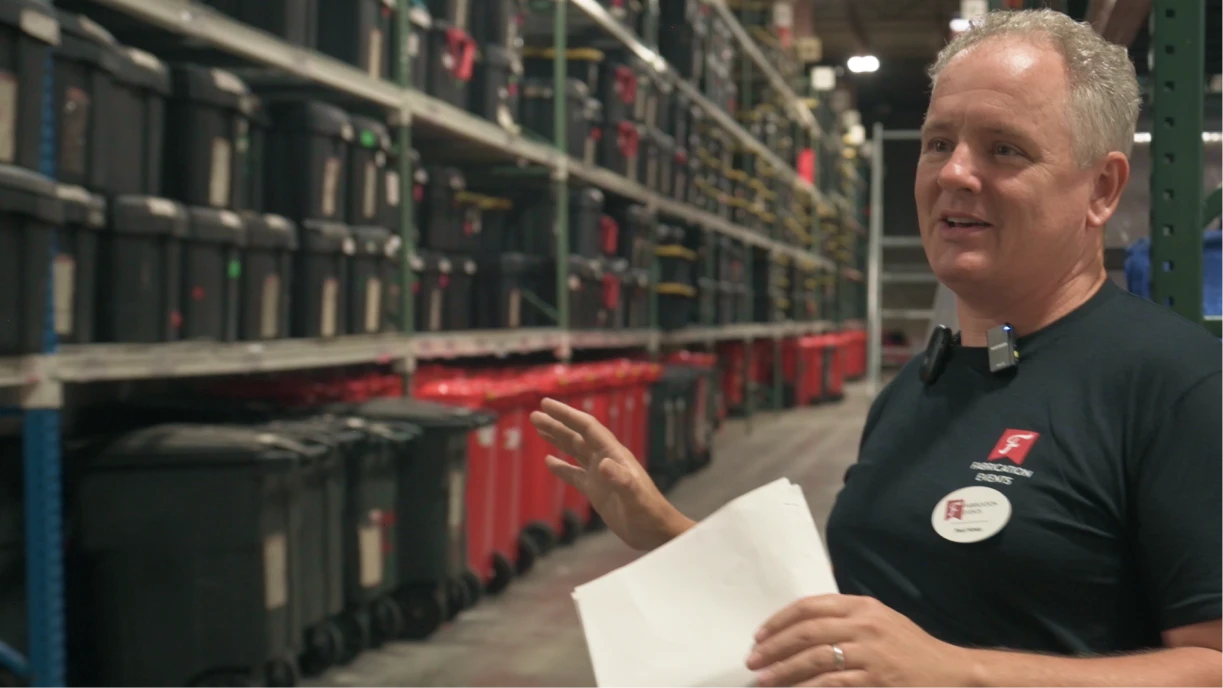It seems like everyone calls their event business “boutique” these days. But after 29 years, Heidi Hiller of Innovative Party Planners has earned the label — and she can tell you exactly what separates truly boutique businesses from those just pretending to be.
It’s about being focused, selective, and systematic in ways most event pros never consider.
Key Takeaways:
-
Boutique means focused, not small.
A truly boutique event business has a specific niche, systematic operations that make custom service repeatable, and the willingness to turn away clients who don’t fit.
-
Your ideal client should be a real person your team can reference.
When evaluating new prospects, measure them against one unnamed client who represents everything you want more of — specificity makes saying “no” easier.
-
Systems are what make boutique service scalable.
The effortless, personalized experience clients pay premium prices for runs on rock-solid backend operations, not winging it every time.
-
Your niche should fit the life you want to live.
Consider what types of events and clients allow you to balance work with family, relationships, and personal time — not just revenue potential.
What "Boutique" Actually Means
Boutique doesn’t necessarily equal small.
“The boutique definition of the business is really having a niche that is very focused,” Heidi explains. “You know your client, your clients know what you provide. You’re very transparent about that, and you really don’t crawl outside of that.”
The Three Non-Negotiables
1. A very specific niche
Not “we do events” or “weddings and corporate.” Heidi’s niche is high-level business executives who need full-service event production and trust her team completely.
She has one client in mind who the entire team knows and references when evaluating new prospects. “We had one client literally in mind that we all knew was like our ideal client that we had earned, and it was like, ‘How close are they to that?'”
That level of specificity isn’t limiting. It’s liberating. When your team can measure every potential client against a real person, saying “no” becomes easy.
2. High-level service that looks effortless
“You try not to make it look cookie cutter on the surface, but the systems that are in place on the back end are super important to making that appear that way.”
This is the key most people miss: boutique businesses are incredibly systematic behind the scenes.
The custom, personalized, “we-made-this-just-for-you” experience your clients rave about runs on rock-solid operations. Heidi uses Goodshuffle Pro for inventory and client communication and Asana for task management. Weekly team meetings where mistakes get discussed openly. Clear processes for everything from place card management to admitting when inventory counts are off.
The magic isn’t in winging it; it’s in having systems so tight that you can deliver premium experiences consistently.
3. Willingness to say no
“We are very particular about the kinds of clients that we do service.”
Boutique businesses don’t take everyone. They’ve earned the right to be selective — and they protect that selectivity fiercely.
For Innovative Party Planners, that means turning away DIY clients who want help executing their own vision. “There are planners out there that do that and do it well, and we tried for a while, but the problem is we are focused on every detail, and we have the team in place who is. It’s very hard for us to let go and allow that DIY mom to be like part of our team.”
Instead of forcing a service model that doesn’t fit, they created Disco to Go — a rental service for DIYers who need their inventory but not their planning expertise. That’s boutique thinking: serve your ideal client perfectly, and find alternative ways to help everyone else without compromising your focus.
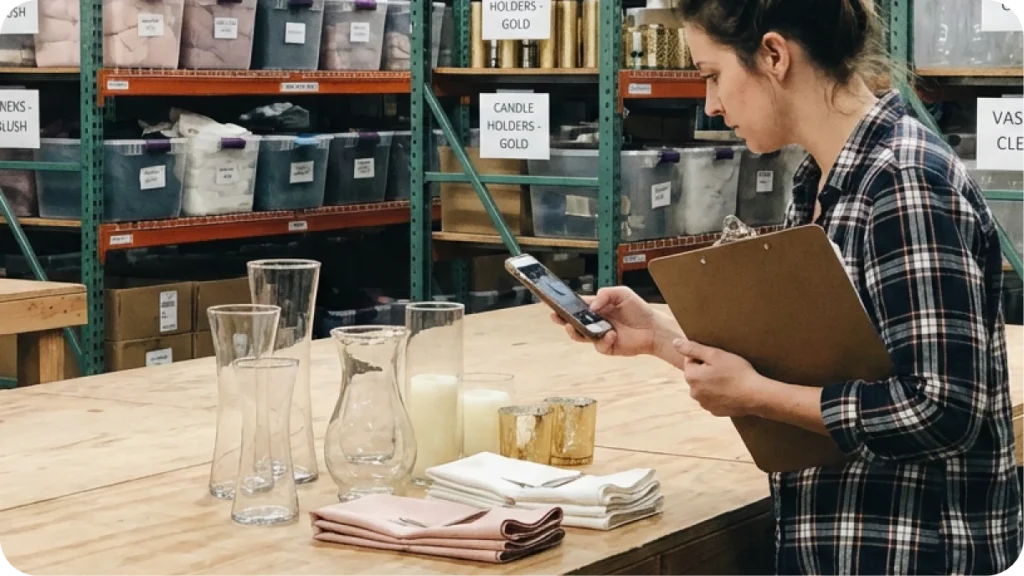
Why Systems Are Your Boutique Secret Weapon
Here’s what people get wrong: they think boutique means artisanal, one-off, reinventing the wheel every time.
The opposite is true.
Heidi’s team can deliver a custom experience for a high-level executive because they have systems for everything. When a client submits a wishlist on Wednesday, it’s approved and inventory is pulled by Thursday morning.
That’s boutique service: fast, transparent, solution-focused. And it only works because the systems catch the problem immediately.
“We have put a lot of systems into place and Goodshuffle Pro was certainly one of the biggest that really has helped us to make sure we don’t leave anything behind,” Heidi says, referencing a horror story from her early days when place cards got left at the studio during a bar mitzvah setup.
“A lot of rules got into place after that. We developed a brand new system after that on how to handle place cards and check to make sure we had them.”
That’s the boutique mindset: every mistake becomes a system improvement. Every close call becomes a new checklist.
The Client You're Really Looking For
When Heidi talks about her ideal client, she’s not describing a demographic. She’s describing a relationship:
“Our clients were people who needed all the services that we offer, which goes from helping before they even have a concept of an event.”
She’s talking about corporate team building, nonprofit galas, fundraising events, job fairs. “Anything you put more than two people in the room and you need to send out an invitation to me is an event. And if you don’t have time to really concentrate on that and you trust us to do it with you, that is, you are my client.”
Notice the language: trust us to do it with you.
Not for you. With you.
“I drew my client as a business, a higher level business executive who is holding an event. It can be a social event, it can be an event for their own company. It can be an event for a board they’re on, the organization, whatever it is. They’re in a capacity to have a high level conversation and earn trust and understand how tasks are divided, and timelines and really strategizing that. That’s my client.”
So Heidi’s not just looking for someone with a budget. She’s looking for someone who understands collaboration, values expertise, and can have strategic conversations about what success looks like.
And she’s also looking for clients who can handle honesty when things go wrong.
“I hope that ideal client I have in my persona also accepts truth and human error. That’s part of the character of that person.”
If a client can’t handle transparent mistake management, they’re not the right client for Heidi’s boutique business — no matter how much money they have.
Your Niche Should Fit Your Life, Too
Your niche should reflect the life you want to live, not just the clients you want to serve.
Here’s the question most people skip when they’re defining their niche: “If I could balance my life out a little better, what kinds of events would help me do that?”
“Part of taking the corporate and nonprofit work was because it’s during the week,” Heidi explains. “I hardly saw my kids when I started this business.”
Heidi chose corporate and nonprofit events because they happen during the week, they free up weekends for family, they’re full-service (no DIY hand-holding), and they fit her ideal client persona (high-level executives).
Strategic niche selection goes beyond revenue.
What You Can Do This Week to Go Boutique
If you want to move from “small event business” to “truly boutique,” start here:
- Name your ideal client. Not a demographic — a real person. Someone you’ve worked with who represents everything you want more of. Make sure your team knows who you’re talking about. Measure every new inquiry against them.
- List what you won’t do. Heidi won’t take DIY clients who want help executing their own vision. She won’t “schlep” furniture (she subcontracts instead). She won’t chase trends with her inventory. What’s on your “won’t do” list? If you don’t have one, you’re not boutique yet.
- Audit your systems. What makes your custom service repeatable? If the answer is “nothing, I just figure it out every time,” you’re headed for burnout. Boutique businesses run on systems that make premium experiences scalable.
- Check your team culture. When someone makes a mistake, do they hide it or immediately bring it to you with “what should we do?” If they’re hiding mistakes, you don’t have a boutique culture yet — you have a fear culture.

Boutique Is Earned, Not Declared
“I feel like we’ve earned the boutique label over the years,” Heidi says.
You don’t become boutique by having a pretty website, charging premium prices, or calling yourself “high-end.”
You become a boutique by knowing exactly who you serve (and who you don’t), building systems that deliver consistent excellence, having the courage to say “no” and mean it, and delegating everything that doesn’t showcase your unique value.
After 29 years, Heidi can prove her business is boutique — not with marketing language, but with clear systems, a team that shares her standards, and clients who trust her completely.
That’s the real meaning of boutique. And it’s worth the work to get there.
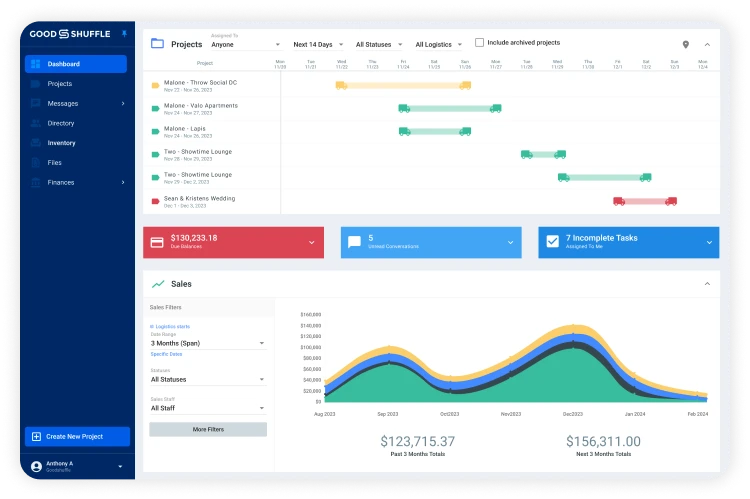
FAQs
Think of one client you’ve worked with who represents everything you want more of — someone who trusted your expertise, valued collaboration, paid on time, and made the work enjoyable. Use them as your measuring stick for every new inquiry.
Saying “no” to wrong-fit clients protects your ability to deliver exceptional service to right-fit clients. Heidi created Disco to Go (a rental-only service) for DIYers who don’t need full planning, so she could serve them without compromising her boutique focus. Find alternative ways to help people who aren’t your ideal client.
Start with whatever keeps you up at night. For Innovative Party Planners, it was inventory management (Goodshuffle Pro), task management (Asana), and weekly team meetings where mistakes get discussed openly. Identify where things fall through the cracks most often and build a system there first.
Model it from the top. When you make a mistake, immediately tell your team “I made a mistake, what should we do?” Use “we” language, never blame individuals, and treat every mistake as a learning opportunity that improves your systems. If people fear being fired, they’ll hide problems until they become disasters. —
